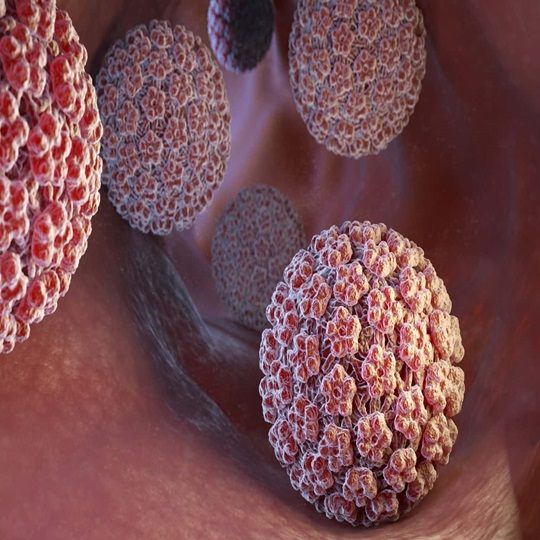HPV Vaccine
HPV Vaccine | Today, the HPV (Human Papillomavirus) vaccine is usually administered during adolescence or early adulthood and is considered the most effective vaccination before sexual activity. However, adults or sexually active individuals can also get HPV.
There are several factors to consider when considering the HPV vaccine at age 40. First of all, it is important whether the person has never had HPV before. If the person has never been vaccinated before and is at risk, the vaccine can be considered even at age 40.
However, the effectiveness and benefits of the vaccine may decrease with age. Because the risk of HPV infection is generally higher at younger ages. Therefore, when it comes to vaccinating people aged 40 and over, the individual situation should be taken into account.
In particular, the benefit of the vaccine may be lower in people who have completely stopped or limited sexual activity after the age of 40. However, the vaccine may still be preferred because it can protect against some types of HPV.
Finally, there are several contraindications for the HPV vaccine after the age of 40. Vaccination is not recommended, especially in people who have had a serious reaction to vaccine components or to a previous vaccine.
How Many Times Should HPV Vaccine Be Given?
The HPV vaccine is usually administered in 2 or 3 doses. However, the number of doses may vary depending on the time of administration and the person’s age.
The vaccine is usually started for adolescents around the age of 11-12. The effectiveness of the vaccine administered at this age is at its highest level. The vaccine is administered in 2 doses for those under the age of 15. The second dose is administered 6-12 months after the first dose.
If the person is over the age of 15 or has joined the vaccination program late, 3 doses of the vaccine may be required. In this case, the second dose can be administered 1-2 months after the first dose, and the third dose can be administered 6 months after the second dose.
However, it is stated that 2 doses of the vaccine can also be protective in people over the age of 15. However, the effectiveness and protection of the vaccine may be lower in individuals over the age of 15.
In summary, the number of doses of the vaccine may vary depending on the person’s age, the time of administration of the vaccine, and their past vaccination status. Therefore, it is important to consult a health care professional before vaccination.
Who Should Not Get the HPV Vaccine?
Those with Serious Allergy to the Vaccine: HPV vaccine should not be administered to individuals who have had a serious allergic reaction to vaccine components or to the vaccine in the past. These individuals may be contraindicated for the vaccine due to the risk of severe allergic reactions to vaccine components.
Those Who Have Had Serious Reactions After Vaccination in the Past: Re-vaccination is not recommended for individuals who have had a previous vaccination and experienced serious side effects after vaccination. The condition of these individuals should generally be evaluated by a healthcare professional and alternative protection methods should be considered.
Vaccination During Pregnancy: The vaccine should not be administered during pregnancy. Since the risks of the vaccine during pregnancy are not fully known, it should not be administered to individuals who are planning to become pregnant or who are pregnant. However, there is generally no harm in administering the vaccine after pregnancy.
Does the HPV Vaccine Provide Lifelong Protection?
Whether the HPV vaccine provides lifelong protection depends on many factors and it is difficult to give a clear answer. However, current data and research indicate that the HPV vaccine provides long-term protection.
The ability of the vaccine to provide long-term protection may vary depending on when the vaccine is administered, how many doses are administered, which HPV types it protects against, and the person’s sexual activity.
In general, the vaccine provides long-term protection when administered during adolescence and when the full dose schedule is followed. In particular, the effectiveness of the vaccine may be higher if the first dose of the vaccine is administered before sexual activity begins.
Studies show that the vaccine is effective for at least 10 years. Some studies suggest that the vaccine may be effective for more than 10 years and that protection against certain HPV types may continue.
However, there is no definitive evidence that the HPV vaccine provides full lifelong protection. Therefore, the vaccine may need to be renewed or receive booster doses at certain intervals.
In summary, more research is needed on the ability of the HPV vaccine to provide long-term protection. However, current evidence suggests that the vaccine is effective for at least 10 years and plays an important role in preventing serious HPV infections and related cancers.







